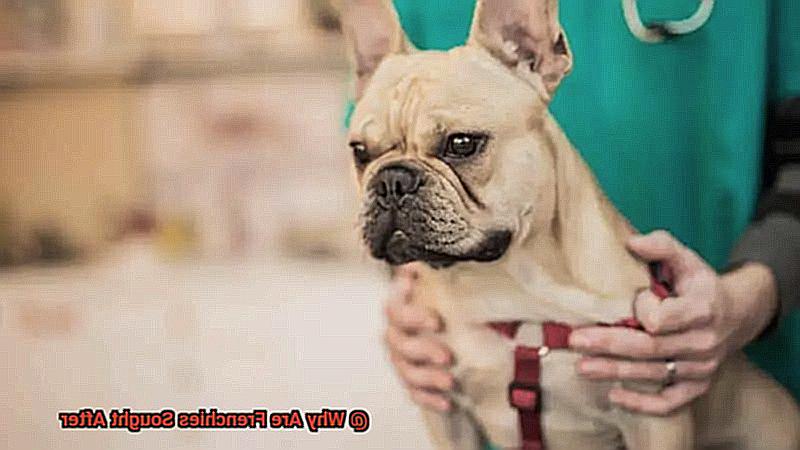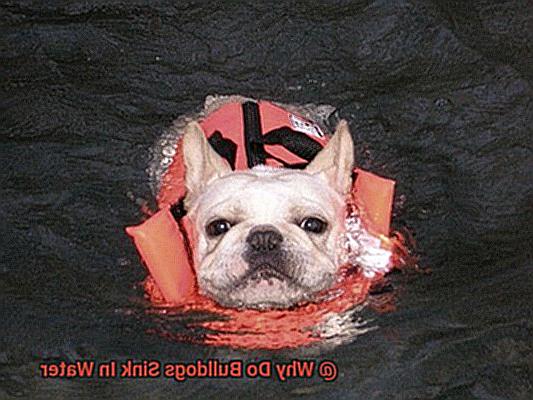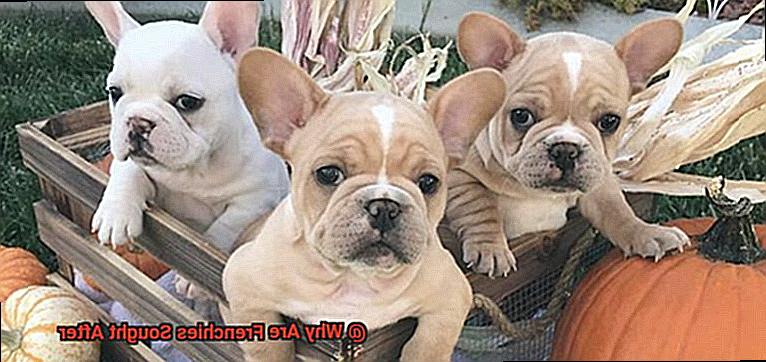Why Does My Dog Keep Eating His Poo?
Hey there, fellow dog lovers.
Contents
- 1 Why Does My Dog Keep Eating His Poo?
- 2 The Evolutionary Roots of Coprophagia in French Bulldogs
- 3 Possible Medical Reasons for Coprophagia in French Bulldogs
- 4 Behavioral Causes of Coprophagia in French Bulldogs
- 5 The Link Between Coprophagia and Sensitive Stomachs in French Bulldogs
- 6 Tips for Preventing Coprophagia in French Bulldogs
- 7 Why Punishment is Not an Effective Solution for Coprophagia
- 8 Conclusion
Let’s talk about something that might make you wrinkle your nose – why does Fido insist on snacking on his own poop? It’s a behavior that can leave us scratching our heads and reaching for the air freshener.
But before you panic, know that it’s actually quite common – up to 16% of dogs do it at some point. But what drives them to dine on their doo-doo?
Is it a sign of a bigger issue or just an odd quirk? In this post, we’ll dig into the reasons behind this behavior and share some tips on how to stop it.
So, grab your furry sidekick and let’s explore the curious world of poop-eating pups.
Why Does My Dog Keep Eating His Poo?
French Bulldogs are known for their adorable wrinkly faces and playful personalities. But as a French Bulldog owner, you may have noticed a not-so-cute behavior in your furry friend – eating his own poop. This behavior, known as coprophagia, can be concerning and even repulsive to dog owners. So why do they do it? And more importantly, how can you stop it? In this blog post, we will explore the various reasons behind coprophagia in dogs and provide tips for preventing and managing this behavior in your French Bulldog.
Instinct:
First and foremost, it is essential to understand that dogs are scavengers by nature. In the wild, dogs and other animals would eat their feces to keep their living area clean and avoid attracting predators. This instinct may still be present in domesticated dogs, leading them to engage in coprophagia.
Boredom:
Like humans, dogs need mental and physical stimulation to stay healthy and happy. Without proper exercise and playtime, they can become bored and resort to destructive or undesirable behaviors, such as eating their own poop. This is especially true for high-energy breeds like French Bulldogs who crave attention and activities.
Nutritional Deficiencies:
If your dog’s diet is lacking certain nutrients, they may try to compensate by eating their own poop. This behavior is more common in puppies who are still developing their digestive system or dogs who are fed poor-quality food. It is crucial to ensure that your French Bulldog’s diet is balanced and meets all nutritional requirements.
Health Issues:
Coprophagia can also be a sign of underlying health issues in your French Bulldog. Conditions such as malabsorption or enzyme deficiencies can make it difficult for dogs to digest their food properly, leading them to search for nutrients in their own feces. Medical conditions like diabetes or Cushing’s disease can also cause an increase in appetite, leading dogs to eat anything they can find, including their own poop.
The Evolutionary Roots of Coprophagia in French Bulldogs
You may have heard the term “coprophagia” before and cringed at the thought of it. For those who are not familiar with this term, it refers to the behavior of eating feces. Yes, it may sound gross and even disgusting to some, but the truth is, coprophagia is a common behavior seen in many breeds of dogs, including our beloved French Bulldogs.
As a French Bulldog owner, you may have experienced this behavior firsthand and felt worried or embarrassed about it. But before we jump to any conclusions, let’s take a step back and understand the evolutionary roots of this behavior.
Believe it or not, coprophagia has its origins in survival instincts. Our domestic dogs have descended from wolves, and in the wild, wolves would eat the feces of their pack members to keep their living space clean and to hide their scent from potential predators. This behavior can also be observed in other wild canids such as foxes and coyotes.
So why do some dogs still exhibit this behavior even though they no longer live in the wild? Well, the answer lies in their instinctual nature. Dogs are natural scavengers, and in the past, eating feces was necessary for survival. This behavior may have been passed down through generations and still persists in our domestic dogs today.
But here’s where things get interesting for French Bulldog owners. Did you know that their breeding history as rat catchers may also play a role in their inclination towards coprophagia? Yes, you read that right. French Bulldogs were originally bred as rat catchers, and one of their tasks was to consume the feces of rats. This served a dual purpose – it eliminated evidence of rats’ presence and prevented attracting more rats.
While modern-day French Bulldogs may not have to hunt for rats anymore, this behavior may still be ingrained in their genetics, making them more prone to eating feces. So the next time your Frenchie indulges in this behavior, remember that it’s not their fault – it’s in their genes.
As a French Bulldog owner, it’s essential to understand the evolutionary roots of coprophagia and how it may be connected to your dog’s breeding history. It’s also crucial to provide a balanced and nutritious diet for your Frenchie, as nutritional deficiencies can also contribute to this behavior.
Possible Medical Reasons for Coprophagia in French Bulldogs
If you’re a French Bulldog owner, you may have witnessed the unsettling behavior of your dog eating their own feces. This is known as coprophagia, and while it may seem gross to us, it is a common behavior in dogs, including French Bulldogs. But why do they do it? Is it just a behavioral issue or could there be underlying medical reasons for this behavior? As an expert on the topic, I’m here to provide you with a comprehensive explanation of potential medical causes and solutions for coprophagia in French Bulldogs.
Possible Medical Reasons
One of the main reasons why dogs may eat their own feces is due to a lack of certain nutrients in their diet. This is especially relevant in French Bulldogs, who have sensitive stomachs and may have a harder time digesting their food. If your dog is not receiving enough protein, vitamins, or minerals, they may resort to eating feces as a way to supplement their diet.
Another possible reason for coprophagia in French Bulldogs could be related to digestive issues such as malabsorption or maldigestion. This can cause food to pass through their system too quickly, leading to undigested nutrients in their feces that may be appealing for them to eat. Additionally, underlying health conditions like pancreatic insufficiency or parasites can also affect a dog’s ability to properly digest and absorb nutrients from their food, leading them to seek alternative sources for these essential elements.
What Can You Do?
If you suspect that your French Bulldog’s coprophagia may be due to a medical reason, it is important to consult with your veterinarian. They can conduct a thorough examination and proper testing to identify any underlying health issues that may need to be addressed.
Additionally, ensuring that your dog is receiving a well-balanced and nutritious diet is crucial. Consulting with a veterinarian or a professional dog nutritionist can help determine if your dog’s diet is meeting their specific needs.
Possible Solutions
Switching to a high-quality, easily digestible diet specifically formulated for French Bulldogs can help address any nutritional deficiencies that may be causing coprophagia. Adding probiotics or digestive enzymes to your dog’s food can also aid in better nutrient absorption and reduce the likelihood of them seeking out other sources of food.
If a medication is causing your dog’s increased appetite and coprophagia, discuss with your veterinarian about alternative options or ways to manage their condition without causing excessive hunger.
Behavioral Causes of Coprophagia in French Bulldogs
French Bulldogs are known for their playful and curious nature, but sometimes their inquisitive nature can lead to some not-so-pleasant behaviors. One such behavior is coprophagia, or the act of eating feces. As a French Bulldog owner, it can be alarming and even disgusting to witness your furry companion engaging in this behavior. But fear not, as an expert in the field, I am here to shed light on the various behavioral causes of coprophagia in French Bulldogs and provide solutions to prevent this behavior.

Boredom: A Common Culprit
Just like humans, dogs can also get bored. And when they do, they may find ways to entertain themselves, which for French Bulldogs can sometimes mean indulging in their own feces. These active and intelligent dogs need both physical and mental stimulation to keep them satisfied. Without adequate exercise and mental enrichment, they may resort to coprophagia as a way to pass the time.
Attention Seeking Behavior
French Bulldogs are notorious attention seekers and will do just about anything to get their owners’ attention. This includes engaging in undesirable behaviors such as coprophagia. If your Frenchie feels neglected or wants more attention, they may resort to eating feces as a way to get a reaction from you. This behavior can be reinforced if you scold or reprimand them for it, as any attention is better than no attention for these attention-loving dogs.
Nutritional Deficiencies: A Hidden Cause
Believe it or not, nutritional deficiencies can also play a role in coprophagia in French Bulldogs. If your Frenchie’s diet lacks essential nutrients, they may seek out feces as a way to fulfill those missing nutrients. This is especially common in puppies who are still developing and need proper nutrition to support their growth.
Addressing the Root Cause
As a responsible French Bulldog owner, it is crucial to address the root cause of your dog’s coprophagia. Providing adequate physical and mental exercise, giving proper attention and training, and ensuring a balanced diet can help prevent this behavior from occurring. It is also important to rule out any underlying medical conditions that could be causing coprophagia, such as gastrointestinal issues or parasites. Consult with your veterinarian to rule out any potential medical causes.
The Link Between Coprophagia and Sensitive Stomachs in French Bulldogs
Not only is it unpleasant to witness, but it can also lead to potential health risks for your pup. However, did you know that this behavior can often be linked to their sensitive stomachs? In this post, we’ll explore the connection between coprophagia and sensitive stomachs in French Bulldogs and provide practical steps for addressing this behavior.
Understanding the Link Between Coprophagia and Sensitive Stomachs in French Bulldogs
French Bulldogs are known for their affectionate and playful nature, but they can also exhibit some undesirable behaviors, such as coprophagia. This behavior, also known as poop-eating, can be quite alarming and concerning for dog owners. However, one of the main reasons why French Bulldogs may engage in this behavior is due to their sensitive stomachs.
So why do French Bulldogs with sensitive stomachs turn to eating feces? It all comes down to their digestive system. French Bulldogs are notorious for having sensitive digestive systems, which can be easily upset by certain foods or environmental factors. This sensitivity can lead to gastrointestinal discomfort and malabsorption of nutrients, causing them to seek out alternative sources of nutrition, such as their own feces.

How a Sensitive Stomach Leads to Coprophagia
Furthermore, French Bulldogs have a strong sense of smell, making them more prone to eating feces. This is because feces contain undigested food particles that can still be appealing to dogs with sensitive stomachs. The strong smell can also trigger their innate scavenging instincts, leading them to see feces as a potential food source.
Lack of proper nutrition can also play a role in coprophagia for French Bulldogs. If they are not getting all the necessary nutrients from their diet, they may turn to eating feces as a way to supplement their diet. This is especially common in dogs who are on calorie-restricted diets or are not getting enough protein or vitamins in their meals.
Practical Steps for Addressing Coprophagia in French Bulldogs with Sensitive Stomachs
Now that we understand the link between coprophagia and sensitive stomachs in French Bulldogs, here are some practical steps you can take to address this behavior:
Tips for Preventing Coprophagia in French Bulldogs
Like any other dog, they can also exhibit some unwanted behaviors, one of which is coprophagia – the act of eating feces. While it may seem disgusting and unpleasant to us as humans, it is actually a natural behavior for dogs. But as a French Bulldog owner, you may be wondering how you can prevent this behavior in your furry friend. In this guide, I will share my knowledge and expertise on how proper training, management techniques, and a balanced diet can help prevent coprophagia in French Bulldogs.
Firstly, let’s understand why dogs engage in coprophagia. It is believed that this behavior originated from their wild ancestors who ate feces as a way to gain nutrients that may have been missed during digestion. However, for our domesticated French Bulldogs, this behavior can be concerning and unpleasant. Some possible reasons for coprophagia include boredom, stress or anxiety, lack of nutrients in their diet, and even learned behavior from other dogs.
So how can we prevent this behavior from becoming a habit? One of the most effective ways is through proper training and management techniques. Training your French Bulldog to have a strong “leave it” or “drop it” command can help discourage them from picking up and eating feces. This can be achieved through positive reinforcement methods such as using treats and praise.
Another important aspect of preventing coprophagia is managing your dog’s environment. This includes keeping the yard clean and picking up feces immediately, providing plenty of toys and mental stimulation to prevent boredom, and addressing any potential sources of stress or anxiety for your dog.
In addition to training and management techniques, ensuring a balanced and nutritious diet is crucial. Sometimes, dogs may eat feces because they are lacking essential nutrients in their diet. Consult with your veterinarian to determine if your dog’s diet needs any adjustments or if they may benefit from supplements.
In severe cases where coprophagia persists despite preventive measures, it is important to consult with a veterinarian or a certified animal behaviorist. They can help identify any underlying medical conditions or provide more specialized training techniques to address the behavior.
As a French Bulldog owner myself, I have seen firsthand how these methods can effectively prevent coprophagia in our furry friends. However, it is important to note that punishment is not an effective way to stop this behavior. It can cause further stress and anxiety in your dog, leading to other unwanted behaviors.
There are also various products and techniques available that claim to help stop coprophagia, such as adding pineapple or pumpkin to your dog’s diet or using deterrent sprays on their waste. While these methods may work for some dogs, they may not be effective for all.
Why Punishment is Not an Effective Solution for Coprophagia
As a dog owner, the thought of your furry friend snacking on their own feces can be quite disgusting. This behavior, known as coprophagia, is not uncommon in dogs, with an estimated 10-15% of them engaging in it. It can be frustrating and even embarrassing, but before you reach for that punishment, let’s explore why it’s not an effective solution.
What is Coprophagia?
Coprophagia is the scientific term for the act of eating feces. While it may seem gross to us humans, there are reasons why dogs engage in this behavior. Some possible causes include nutritional deficiencies, boredom, stress, or learned behavior from other dogs.
Punishment as a Common Reaction
When most dog owners catch their beloved pet snacking on their poop, their immediate reaction is to punish them. This often involves scolding or physically reprimanding the dog. However, this knee-jerk reaction is not an effective solution for dealing with coprophagia.
Negative Effects of Punishment
Firstly, punishment does not address the underlying cause of the behavior. As mentioned before, there can be various reasons why a dog engages in coprophagia, and simply punishing them will not solve the root issue.
It may temporarily stop the behavior, but it does not address the underlying cause.
Furthermore, punishment can have negative effects on a dog’s behavior and well-being. Dogs may become fearful or anxious when punished, which can lead to other behavioral problems. This can also damage the trust and bond between a dog and their owner.
Alternative Solutions
Instead of using punishment as a solution, there are more effective alternatives for dealing with coprophagia. One approach is to make sure that your dog’s diet is nutritionally balanced and meets their needs. This can help reduce the urge to eat feces due to nutritional deficiencies.
Another solution is to provide mental and physical stimulation for your dog to prevent boredom and stress. This can include regular walks, playtime, and puzzle toys that keep their mind engaged. Additionally, teaching the “leave it” command can also be helpful in preventing your dog from eating feces.
Also Read: Can Frenchies Have Peanut Butter
Conclusion
In conclusion, the behavior of dogs eating their own feces, also known as coprophagia, is a common and puzzling issue for many pet owners.
Despite its unpleasant nature, it is important to understand the reasons behind this behavior in order to properly address it. From medical issues to instinctual behaviors, there are various factors that may contribute to a dog’s tendency to consume their own waste.
While it can be frustrating and concerning for owners, it is crucial to approach this issue with patience and understanding. With proper training and management techniques, coprophagia can be successfully managed and reduced in most cases.
Remember to consult with your veterinarian for any underlying health concerns and seek professional guidance if needed.
You may also like:





